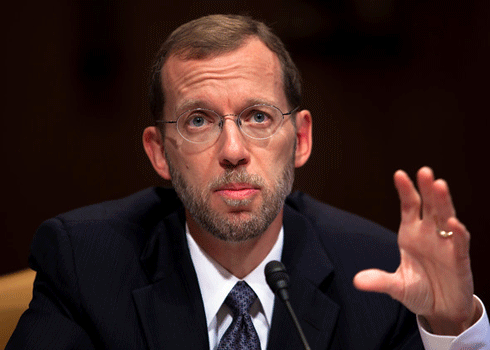Intentionally or not (but probably intentionally), Senate Budget Committee chairman Kent Conrad has mastered the art of deploying CBO chief Doug Elmendorf to ostensibly make the case for Conrad’s policy preferences, under oath.
Today, Elmendorf made two key points before Conrad’s panel: one will be used by Republicans to argue for a permanent extension of the Bush tax cuts; and the other will be used by Democrats to argue for letting Bush’s high-income cuts expired. Both will, of course, bolster Conrad’s argument for his own compromise position on tax cuts.
Here, in Elmendorf’s words, is what will surely be the Republican talking point:
“All four of the options for extending the expiring income tax cuts would raise output, income, and employment during the next two years, relative to what would occur under current law,” Elmendorf said. “A full permanent extension or partial permanent extension would provide a larger boost to income and employment in the next two years than would a temporary extension, and a full extension would provide a larger boost than would the corresponding partial extension.”
Here’s the one Democrats will like: the estimates indicate that all four of the options would probably reduce income relative to what would otherwise occur in 2020,” Elmendorf added. “Beyond 2020, and again relative to what would occur under current law, the reductions in income from all four of the policy options would become larger. Either a full or a partial extension of the tax cuts through 2012 would reduce income by much less than would a full or partial permanent extension.”
So the GOP plan for a full extension of the Bush cuts will, in CBO’s view, provide more stimulus for the sluggish economy in the near term than would President Obama’s plan to let the upper-bracket cuts expire. But the GOP plan for making those extensions permanent will hobble income growth in the long term. Here’s the corresponding graph.

As it so happens, Conrad supports the middle-of-the-road solution implied by Elmendorf’s analysis, including a temporary extension of tax cuts for wealthiest Americans.
Over a year ago now, Conrad famously invited Elmendorf to testify that House health care legislation would not contain costs — an admission that helped secure the Senate’s financing mechanism in the final health care law.










